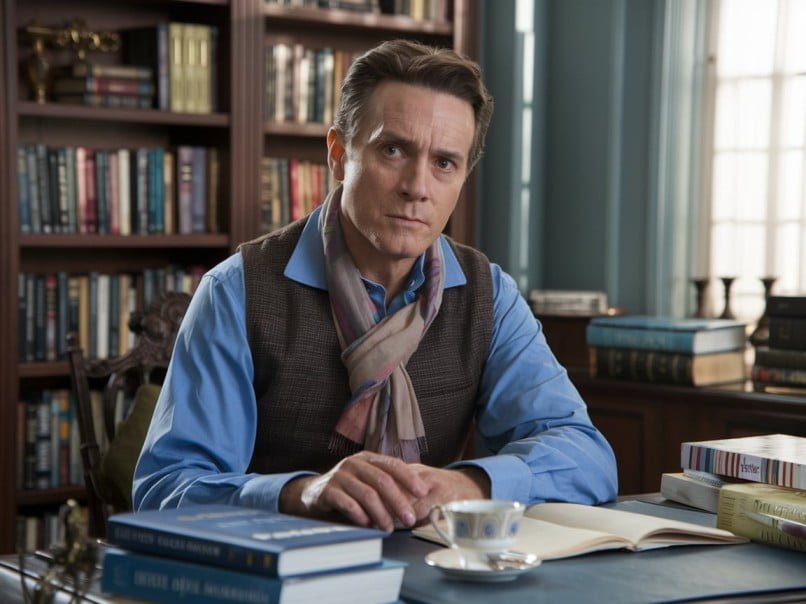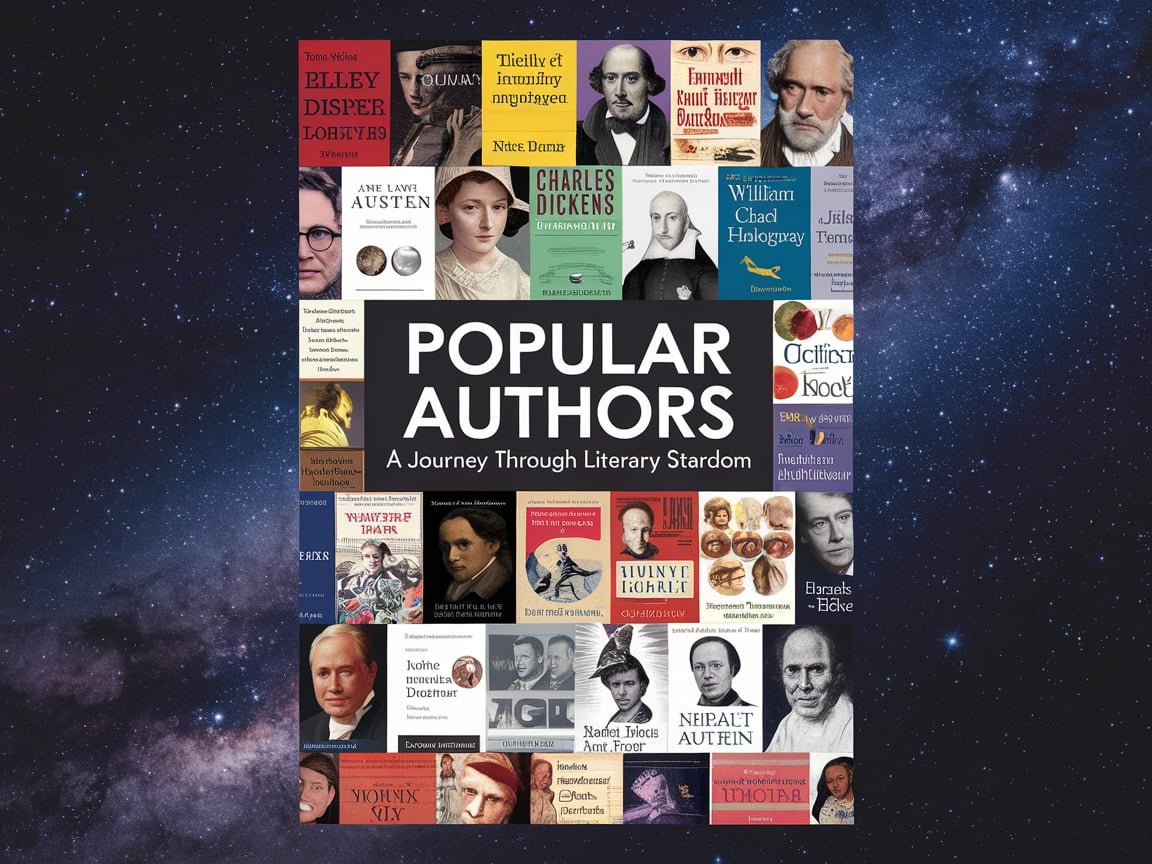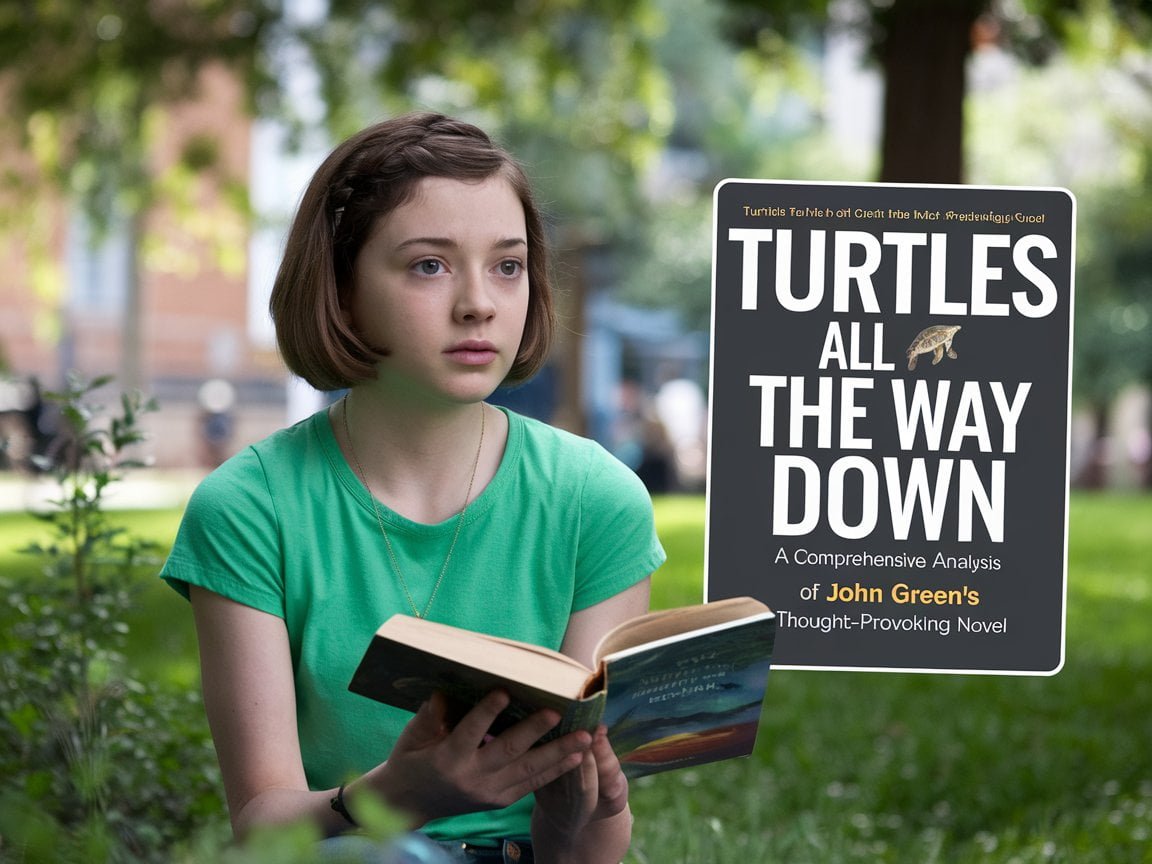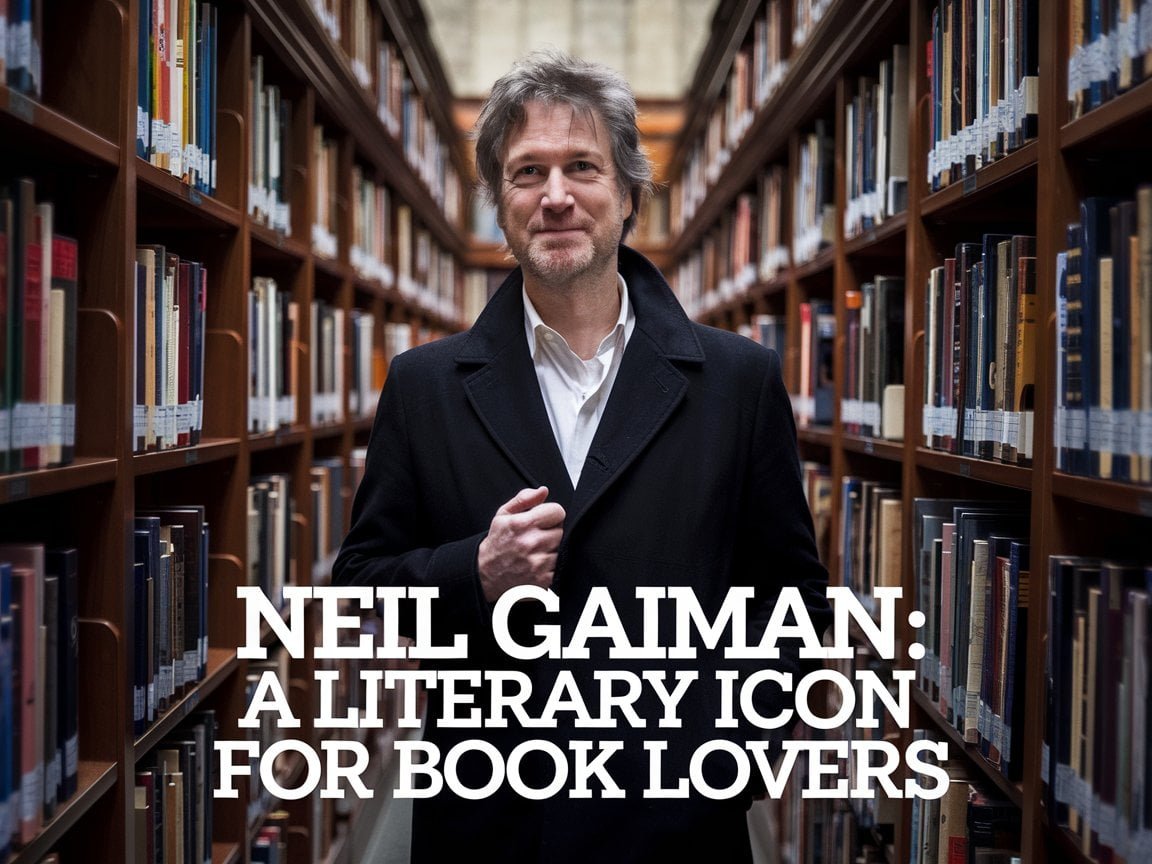In the vast world of literature, certain names shine brighter than others, captivating millions of readers with their storytelling prowess. These popular authors have sold countless books and shaped cultural narratives, inspired generations, and in some cases, revolutionized entire genres. In this comprehensive exploration of popular authors, we’ll delve into what makes these writers stand out, examine their impact on literature and popular culture, and spotlight some of the most beloved wordsmiths of our time.
What Makes an Author Popular?
Before we dive into specific authors, let’s consider what factors contribute to an author’s popularity:
- Storytelling Ability: The power to weave compelling narratives that keep readers engaged.
- Relatable Characters: Creating characters that resonate with a wide audience.
- Consistency: Regularly producing high-quality work over time.
- Innovation: Bringing fresh ideas or perspectives to their genre.
- Marketing and Publicity: Effective promotion of their work and personal brand.
- Adaptability: Success across different mediums (e.g., film adaptations, social media presence).
- Timing: Capturing the zeitgeist or tapping into current cultural interests.
With these factors in mind, let’s explore some of the most popular authors across different genres and eras.

Contemporary Fiction Titans
J.K. Rowling
No discussion of popular authors would be complete without mentioning J.K. Rowling. The creator of the Harry Potter series has sold over 500 million books worldwide, making her one of the bestselling authors in history. Rowling’s magical world captivated children and adults, spawning a massive franchise including films, theme parks, and spin-off works.
Key to Success: Rowling created an immersive, richly detailed magical world that appealed to readers of all ages. Her series grew in complexity alongside its audience, tackling themes of friendship, loyalty, and the battle between good and evil.
Stephen King
The “King of Horror” has been terrifying readers for decades with classics like “The Shining,” “It,” and “The Stand.” King’s prolific output and ability to tap into primal fears have made him a household name.
Key to Success: King’s mastery of suspense and ability to create relatable characters in extraordinary situations have kept readers coming back for more. His work’s adaptability to film and television has also greatly contributed to his enduring popularity.
Dan Brown
Brown shot to fame with “The Da Vinci Code,” a thriller that combined art history, conspiracy theories, and fast-paced action. His Robert Langdon series has sold millions of copies worldwide.
Key to Success: Brown’s novels blend historical facts with fiction, creating page-turning mysteries that also make readers feel like they’re learning something new.
Literary Fiction Luminaries
Haruki Murakami
This Japanese author has achieved international acclaim with works like “Norwegian Wood” and “1Q84.” Murakami’s surrealist style and exploration of loneliness and alienation have resonated with readers globally.
Key to Success: Murakami’s unique blend of magical realism, pop culture references, and deep emotional resonance has created a distinct literary voice that stands out in contemporary fiction.
Margaret Atwood
Atwood’s dystopian novel “The Handmaid’s Tale” has seen a resurgence in popularity thanks to its TV adaptation, but she has long been respected for her poetic prose and incisive social commentary.
Key to Success: Atwood’s ability to craft disturbingly plausible future scenarios and her sharp observations on gender and society have made her work both critically acclaimed and widely read.

Young Adult Phenomena
John Green
Green’s novels like “The Fault in Our Stars” and “Looking for Alaska” have made him a favorite among young adult readers. His work often deals with themes of love, loss, and coming-of-age.
Key to Success: Green’s authentic voice and ability to tackle heavy topics with humor and sensitivity have endeared him to teenage readers and adults alike. His active online presence has also helped build a strong community around his work.
Suzanne Collins
Collins’ “The Hunger Games” trilogy became a global phenomenon, sparking a renewed interest in young adult dystopian fiction.
Key to Success: Collins created a gripping, high-stakes world with a strong female protagonist, tapping into themes of rebellion against authority that resonated strongly with her audience.
Crime and Thriller Masters
Agatha Christie
Though she passed away in 1976, Christie remains one of the bestselling authors of all time. Her intricate murder mysteries featuring detectives like Hercule Poirot and Miss Marple continue to captivate readers.
Key to Success: Christie’s ingenious plots, surprising twists, and memorable characters set the standard for the mystery genre. Her works remain popular due to their timeless themes and puzzle-like nature.
James Patterson
Patterson is known for his Alex Cross detective series and numerous collaborative works. He’s one of the most prolific and commercially successful authors working today.
Key to Success: Patterson’s fast-paced, plot-driven narratives and his ability to work with co-authors to produce multiple books per year have made him a dominant force in the thriller market.
Fantasy and Science Fiction Greats
George R.R. Martin
Martin’s “A Song of Ice and Fire” series, adapted into the hit TV show “Game of Thrones,” has redefined epic fantasy for a new generation.
Key to Success: Martin’s complex political intrigues, morally ambiguous characters, and willingness to subvert fantasy tropes have created a rich, unpredictable world that keeps readers (and viewers) hooked.
Neil Gaiman
Gaiman’s work spans novels, comics, and children’s books. His unique blend of mythology, fantasy, and the everyday has earned him a devoted following.
Key to Success: Gaiman’s ability to reimagine myths and legends in contemporary settings, coupled with his lyrical prose style, has made his work appealing to a broad range of readers.
Non-Fiction Notables
Malcolm Gladwell
Gladwell’s books like “The Tipping Point” and “Outliers” have popularized social science concepts for a general audience.
Key to Success: Gladwell’s talent lies in making complex ideas accessible through engaging storytelling and relatable examples. His work often challenges conventional wisdom, sparking widespread discussion.
Yuval Noah Harari
Harari’s “Sapiens” and “Homo Deus” have become international bestsellers, offering sweeping narratives of human history and potential futures.
Key to Success: Harari’s interdisciplinary approach and ability to synthesize vast amounts of information into compelling narratives have made his work popular among readers seeking to understand big-picture historical trends.
The Impact of Popular Authors
Popular authors do more than just sell books; they can have a profound impact on culture, language, and even social movements:
- Shaping Language: Phrases from popular books often enter everyday language. For example, “catch-22” from Joseph Heller’s novel of the same name.
- Influencing Social Issues: Books like Upton Sinclair’s “The Jungle” or Rachel Carson’s “Silent Spring” have sparked real-world changes in law and policy.
- Creating Shared Cultural Experiences: Popular books become reference points in culture, allowing people to connect over shared reading experiences.
- Boosting Tourism: Settings featured in popular books often see increased tourism. For instance, Dan Brown’s books have boosted visitor numbers to many European landmarks.
- Inspiring Creativity: Popular authors often inspire fan fiction, art, and other creative works, fostering communities of creators.

The Evolution of Author Popularity in the Digital Age
The concept of the “popular author” has evolved significantly in the digital age:
- Social Media Presence: Many popular authors now engage directly with fans through platforms like Twitter or Instagram, building personal connections with their audience.
- Self-Publishing: The rise of self-publishing platforms has allowed some authors to achieve popularity without traditional publishing gatekeepers.
- Bookstagram and BookTok: Social media communities focused on books have the power to catapult authors to sudden popularity.
- Multimedia Presence: Popular authors today often extend their brand beyond books into podcasts, YouTube channels, or online courses.
- Global Reach: Digital platforms have made it easier for authors to reach international audiences, leading to more globally popular authors.
Challenges Faced by Popular Authors
While being a popular author might seem like a dream come true, it comes with its own set of challenges:
- Pressure to Produce: There’s often immense pressure to consistently produce bestsellers.
- Public Scrutiny: Popular authors’ personal lives and opinions can come under intense public scrutiny.
- Balancing Artistry and Commerce: There can be tension between creative expression and meeting market demands.
- Typecasting: Authors can struggle to break out of the genre or style that made them popular.
- Burnout: The demands of writing, promotion, and public appearances can lead to burnout.
The Future of Popular Authors
As we look to the future, several trends are likely to shape the landscape of popular authors:
- Increased Diversity: There’s a growing demand for diverse voices and stories, which is likely to broaden the range of popular authors.
- Interactive Storytelling: Technologies like virtual and augmented reality may create new ways for popular authors to engage readers.
- AI Collaboration: Some authors may begin collaborating with AI to produce content, potentially changing our understanding of authorship.
- Niche Popularity: While there will still be global bestsellers, technology may also allow for more “micro-popular” authors with dedicated niche followings.
- Transmedia Storytelling: Popular authors may increasingly create stories that span books, games, social media, and other platforms.
Conclusion: The Enduring Power of Storytelling
Despite the many changes in how we consume media, the allure of a well-told story remains constant. Popular authors, whether they’re crafting edge-of-your-seat thrillers, heart-wrenching literary fiction, or mind-bending science fiction, all share the ability to transport us to new worlds, make us think differently about our own, and connect us through shared emotional experiences.
As readers, engaging with the works of popular authors allows us to participate in cultural conversations, challenge our perspectives, and simply enjoy the pleasure of getting lost in a good book. While individual authors may rise and fall in popularity, the role of the popular author as a cultural touchstone and source of entertainment and insight is likely to endure for generations to come.
Whether you’re a longtime fan of bestselling authors or just beginning to explore the world of popular literature, there’s never been a better time to dive into a new book. So why not pick up a work by one of the authors mentioned here, or explore the bestseller lists to discover the next big name in literature? Happy reading!
Who are some of your favorite popular authors? How have they impacted your life or way of thinking? Share your thoughts and recommendations in the comments below!





